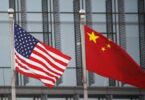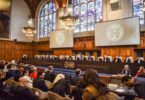Women have often been the invisible actors in history—sidelined from formal political and social spaces—but creating their own spaces for change through engaging in nonviolent resistance. Research shows that movements with active women’s participation are more likely to maintain nonviolent discipline and achieve their goals. From fighting for human rights in Venezuela to protesting unconstitutional amendments in Uganda, women leaders of nonviolent movements have proven to be key actors for peace.
Women’s leadership in nonviolent movements creates opportunities for new and diverse tactics and often ensures a diversity of participation, increasing a movement’s power. But, women also face specific challenges, such as balancing their activism with their roles at home and the workplace, their vulnerability to sexual abuse, and challenging perceptions of powerlessness.
To celebrate National Women’s History Month, the U.S. Institute of Peace and the 2020 One Woman, One Vote Festival will host an intergenerational discussion among women nonviolent activists. To strengthen future nonviolent movements, leaders must learn from the past challenges and successes. Women leaders from Libya, Syria, Uganda, Afghanistan, the U.S. and Venezuela will speak from their experiences as activists for social change on the challenges they faced as women and how they organize to overcome them.
Courtesy: (usip.org)






